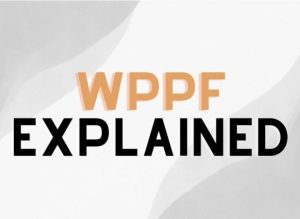Insights
Scaling Solar Power In Bangladesh: A Law And Policy Perspective
7 minutes to read

Renewable energy refers to the use and development of natural energy sources, such as solar, wind, and hydroelectric power which can provide a more stable and reliable source of power, particularly in countries like Bangladesh that are prone to natural disasters such as cyclones and floods. In addition to these benefits, the use of renewable energy can also help to tackle the climate crisis by reducing the country’s dependence on imported fossil fuels leading to cost savings for both households and businesses and can also help to boost the country’s economy by creating new jobs in the renewable energy sector. According to the submissions made to the United Nations at COP26 in Glasgow in 2021, Bangladesh has set itself an ambitious target of generating over 4100 MW of energy from renewable sources, which is to source the nation’s 40% of electricity by the end of this decade, of which solar power alone is aimed to be generating 2300 MW of electricity.
With such stance in the Cop 26, it is apparent that among all other sources of renewable energy, recently solar power is becoming increasingly popular in Bangladesh. Undoubtedly, due to the clean, cheap and independent nature of solar power over other sources of energy, it is believed that now investing in solar power shall be the most sustainable and efficient solar solutions to improve environmental impact and reduce electricity costs of businesses, be it small or large. As such, Bangladesh is currently making significant efforts to promote the use of solar power to reduce its reliance on imported fossil fuels and to improve its socio-economic situation.
In the quest of reaching its ambitious targets and expanding its renewable energy capacity, Bangladesh has adopted policy measures and are on the way to finalizing existing solar projects and introducing new mega projects under public-private partnership concerns whereby the surplus electricity generated after its use is provided to the national grid. Recently, many local and foreign investors have expressed interest in establishing large-scale solar plants and since then many solar parks have been set up which are supplying up to 230MW to the national grid each day.
Due to the increasing interest of various investors, the Bangladesh Power Development Board (BPDB), SREDA, and Infrastructure Development Company (Idcol) are taking different measures to draw investment in renewable energy, particularly solar power to increase electricity generation of the country. Local conglomerates have set up solar power plants on unutilized lands of its subsidiary companies, whereby up to 3MW of electricity is generated. This surplus electricity is thereafter distributed to the Bangladesh Rural Electrification Board through net meters and eventually supplied to the grid. Furthermore, a foreign joint venture initiative have also received approval from the Government in Bangladesh for an arrangement whereby the government will buy each kilowatt hour (kWh) of electricity produced at the plant for Tk 8.20 for 20 years. This is essentially another example of a public-private partnership (PPP) project furthering the initiatives of solar investment in Bangladesh.
However, although the government’s position on accepting proposals for solar investments by local and foreign companies seems lucrative, in reality, Bangladesh has not been able to achieve its electricity generation of 10% target through solar power in 2021. The paramount reason for this being the unavailability of unused land, which is proving to be scarce in Bangladesh as days go by, whereas in India the main reason India has plummeted its solar power game is the availability of barren lands whereby it has procured both solar and wind power plants and turbines.
Apart from large scale on-ground solar projects that include large solar power plants and solar parks, recent solar power expansion has also focused on rooftop solar photovoltaic systems. This is the most feasible way to curb the land crisis, since no land is required and the solar plants can be installed on rooftops of various households and industries, paving the way for both households and commercial and industrial business to enjoy uninterrupted electricity across the country as the primary source of energy. Furthermore, Rooftop Solar systems can be set up in both CAPEX or OPEX models whereby a CAPEX model is the most common business model in Bangladesh. In this model the consumer purchases the solar system, by making 100% of the payment upfront or financing the system through a financing institution whereas OPEX model is a zero-investment model for the consumer and there is no need for any capital requirement.
Recently, Build-Own-Operate-Transfer (BOOT) projects in the OPEX model are increasingly becoming popular whereby the power producer, who is also the constructor and the developer is building the plant, owning and operating the plant and selling the electricity to its customers and transferring the plant to the consumer after 20 years. Foreign solar companies are now setting up businesses in Bangladesh in the same model, whereby the electricity is produced in the private sector, consumed by the consumer who has leased his rooftop to the company and the surplus electricity is not given to the national grid unlike the mega solar projects.
However, the practical obstacles being faced by such foreign investors/companies are that often the regulatory authorities do not understand the concept of providing electricity off-grid or not providing the surplus electricity to the government at all, making it difficult for such companies to avail the existing incentives provided by the government. The authorities have only started getting acclimatized to private rooftop solar projects and as such there is still widespread mistaking of such projects as PPP projects or any other projects assisted by the government. Due to lack of robust guidelines on privatization of renewable electricity, the foreign companies often face difficulties going through the regulatory hoops to implement such rooftop projects in Bangladesh. A major complaint by the foreign investor companies who are engaged in the implementation of solar plants is that the concerned regulators require more knowledge and understanding of the business model of such companies and must have the knack for development to be able to fulfill the target set in COP 26.
Despite there being practical obstacles for implementing solar power projects, recently the government, through an SRO has introduced a list of goods (machineries and parts) bearing respective HS Codes eligible for a waived 1% Import Duty and full exemption of VAT and Supplementary Duty, provided certain conditions are met. As per the SRO, an importer needs to fulfill the certain conditions. The waiver and exemption shall be applicable for (a) an Industrial IRC holding Industrial establishment who is also VAT Compliant and (b) a VAT-compliant Importer who does not hold an Industrial IRC. Both entities can enjoy the waiver and exemption provided they want to import (a) capital machineries as well as parts or (b) Capital machineries only or (c) Parts only.
However, if an entity wants to import parts independently to that of capital machineries, that is, the entity wants to import parts only in separate consignment to that of capital machineries, then the entity shall be required to have both an Industrial IRC as well as VAT registration and also be VAT compliant.
There are also incentives for importers who are registered as Solar Panel Manufacturing Plants by the Bangladesh Investment Development Authority (BIDA). Such importers can avail full exemption from import duty, VAT and SD on selected machineries and parts. The importers further need to ensure that the imported machinery and parts are solely used for the purpose of solar panel manufacturing.
Furthermore, the government through Bangladesh Bank has recently introduced refinancing schemes for solar projects whereby loans will be provided to Green Initiatives at a reduced interest rate. Additionally, Bangladesh bank has also introduced its own fund for the upgradation and technological development of export-oriented industries (classified to be of highest priority and special development industrial sectors under the Export Policy 2018-2021), in order to increase their competitive advantages and modernize the technology these industries currently use, which also include solar power industries.
Albeit overcoming the practical barriers to business and development of the solar power sector may seem challenging at the moment but is certainly possible given that solar power has the exquisite potential of bringing significant benefits in terms of cost reduction, energy efficiency and sustainability in the energy sector of Bangladesh. The government, particularly the regulatory authorities such as BPDB and SREDA have started to recognize various types of solar projects and make specific guidelines covering each type of projects having the potential to contribute to the electricity generation across the country. Although there is a unified power cell under the Ministry of Power, Energy and Mineral Resources, this power cell needs to be proactive in resolving the problems faced by the local and foreign investors for further progress in this sector.
Furthermore, due to the simplicity and cost-saving nature of rooftop solar projects, more focus and incentives should be provided to businesses offering such projects that also cover reduced taxes for importation.
As a country that is relying on natural gas imports, coal and diesel for most of its energy, steadily switching to renewables is the ideal solution towards energy independence and as such doing all things needful in such a challenging time is the pertinent solution if Bangladesh wishes to ultimately reach its renewable energy goals by 2040.
Saqeb Mahbub, Barrister-at-Law, is a Partner at Mahbub & Company (saqeb.mahbub@mahbub-law.com) and Tasmiah Zaman, Barrister-at-Law is an Associate at Mahbub & Company (tasmiah.zaman@mahbub-law.com)
Read the article on Dhaka Tribune.



